
Explore the top rated Ventura drug rehabs with confidence. We've analyzed each of the 25 addiction treatment centers in Ventura, CA for patient reviews, clinical credentials, transparency, and brand reputation to identify the best rehab programs.
Filter by inpatient, outpatient, detox, health insurance, specialty program and more to quickly find the best drug and alcohol rehab in Ventura.Our Methodology
Rehab Score
Our Rehab Score is designed to make it easier for you to find the best treatment centers. We combine overall ratings with recent feedback to create a score that reflects a center's quality right now.
.

| Name / Address / Rating | Description | Treatments / Programs / Payment Options | Review / Contact | Images | |
|---|---|---|---|---|---|
Ventura, CA | Western Pacific Med Corp (WPMC) is a private substance abuse treatment center. They provide clients of all ages with specialized opioid and alcohol addiction treatment through outpatient and medication assisted services (MAT). They are dedicated to nondiscriminatory, culturally sensitive approaches to treatment. You'll find 'em out in Ventura, Cali | Treatments Programs Payment Options | I was so glad I reached out to Ventura Detox — their advisor was friendly, listened to everything I was going through, and helped me understand my options without any pressure. The call felt reassuring and genuine. Highly recommend their service if you’re looking for a clear guidance in the Ventura County area.
Marcelo Ali
2 months ago
Had to call back, but they made it easy after that.
Naomi Roy
3 months ago
Good service, kind people, very understanding
Lyric Villanueva
3 months ago
| 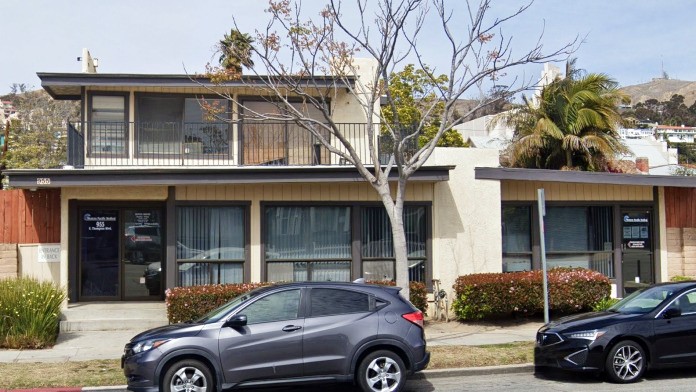
| |
Ventura, CA | The Genesis Program is located in Ventura, California. This is a drug rehab and treatment facility that provides outpatient services to adults who have a drug, alcohol, or opioid use disorder. There are also DUI programs if you need court ordered services after a DUI, as well as educational groups in group counseling sessions. Insurance may cover t | Treatments Programs Payment Options | Genesis has played a pivotal role in creating a safe and supportive environment for my sister to get the help she needed. It is through this program that I have witnessed her true core values start to realign and her willingness to rededicate herself in discovering her true and authentic self without the use of substances.
From the friendly front desk coordinator, to the empathetic counselors, and staff I can't say enough good things about this program.
The psycho-educational groups, family nights, and other counseling services that were provided held her accountable and increased her insight into something she has been struggling with for a long time.
Thank you Athena and team for helping my sister. I will be recommending your services to others. It is great to have a program like this in our community.
MICHAEL BONILLA
1 year ago
Genesis is a great option for individuals who need an outpatient program to integrate into after residential treatment, if you’re struggling with alcohol/drug misuse, or you are substance dependent and would benefit from structure and accountability.
Their program uses best based practices and they do a great job at tailoring treatment plans to an individuals own unique and personal needs. The individual and group counseling were always super helpful and the staff truly want to see you succeed. They offer a friends and family night which was very critical in re establishing trust and ongoing support from those close to you in your life.
In addition, they have a strong after care community in which you are encouraged to be apart of after completing treatment.
If you have the pleasure of conversing with the owner Athena, be sure to pick her brain as she is very knowledgeable in the field of treatment and addiction. It is from my experience she is attentive and does an appreciable job at reflecting meaning within her conversations. Her superb counseling skills and expertise in the field really motivate her clients to find it within themselves to make positive steps towards change. She has helped me overcome a variety of struggles in life and has been instrumental in my ongoing journey.
Through out my time at Genesis, it is clear that Athena and her team are people who truly care about the individuals and families they serve and are dedicated to making the community a healthier and safer place.
I would highly recommend Genesis!
Andrea Robinett
1 year ago
Genesis is a great outpatient program that offers a variety of excellent treatment modalities. I would highly recommend going here if you have a substance use issue. Thanks Genesis!
Caleb Wiggins
1 year ago
| 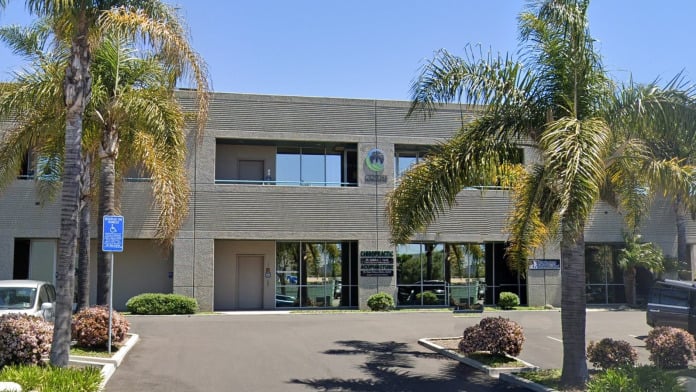
2 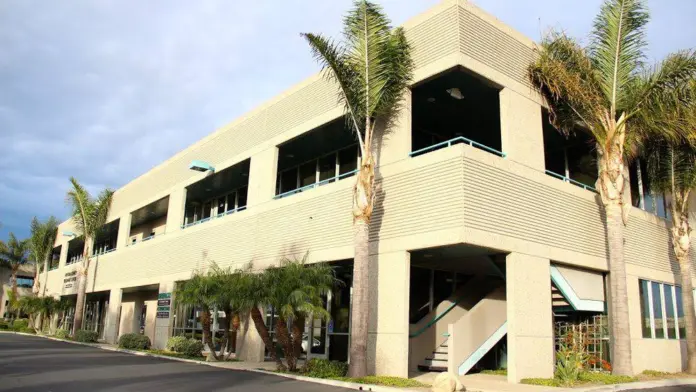
| |
Ventura, CA | Vista del Mar Hospital is a private behavioral health and substance abuse treatment center. They offer detox, inpatient (IP), partial hospitalization (PHP), intensive outpatient treatment (IOP), and dual diagnosis services to adolescent and adult clients. They also offer a military support program specializing in the treatment of PTSD. You'll find | Treatments Programs Payment Options | @GeoffCuocoMills
I been here a few times in 2025' to get my mental state fine tuned after serious T.B.I... Staff is excellent. Doctors are knowledgeable.. Nurses are all great. Food is very good. Views are wonderful. I can't say enough great things for a mental facility. You have use of phones there. No cell phones. Bring some approved things to do during down time. Id give 10 ⭐' if I could.
Geoff Cuoco Mills
1 month ago
I responded to a couple of reviews I read & didn't like,nor agree with. In so doing it edited out my original post which is of far more value.,
This is a Great Psychiatric Hospital. First class Nursing staff, Mental Health Therapist, & Case Management Workers.
The Staff epitomizes patience, kindness, & compassion. Your dietary needs are met by a great nutritionist. The grounds are spectacular, million dollar views, roaming herds of deer. Picture windows, sunsets.
If you have any issues or illness that needs attention, this is the place for it.
In 2 months I was there, I let go of decades of baggage & damage from Extreme environments ( incarceration ).
I got clean & sober after a 7 month relapse, After ending a 7 year engagement in a toxic relationship. I even managed to quit smoking ! I can't thank them all enough ! I wasn't a easy patient by any means, They earned there money & had to dig deep working with me. A Sincere ,well earned Thank you !!
Lance
1 month ago
It’s the best hospital I been to. It feels safe and it helps a lot.
Sierra Paige
4 months ago
| 
| |
Able2Change Orange County Drug & Alcohol RehabAd This is an ad and Able2Change Orange County Drug & Alcohol Rehab is a paid advertiser. Paid advertisers may be listed first in search results. This ad may contain content provided by the advertiser. Rehab.com does not verify ad content or any reviews that are displayed. Learn More San Juan Capistrano, CA | Able to Change Recovery is in San Juan Capistrano, California. It’s a drug and alcohol rehab center for adults and young adults. The program offers residential care, partial hospitalization, intensive outpatient, and aftercare programs. Residential care is a minimum of 28 days. You’ll have 24-hour supervision, assessments, individual and | Treatments Programs Payment Options | View Website (866) 225-3260 | Able2Change Orange County Drug & Alcohol Rehab has no reviews yet. Leave a review.
| 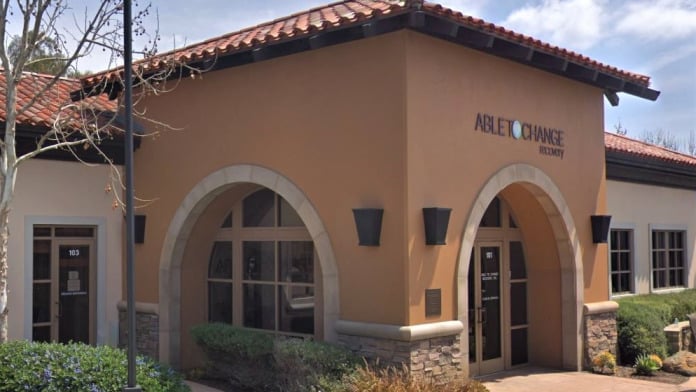
|
Ventura, CA | Khepera House, located in Ventura, California, is an alcohol and drug rehab center that helps individuals suffering from substance use disorders. They offer both detox and inpatient services. The detox process typically takes anywhere from seven to ten days, depending on the person’s situation. One important thing to note is that they don’t u | Treatments Programs Payment Options | Good place to get sober!
Darrell Grepiotis
5 months ago
What an amazing center. The brotherhood here is so supportive. I was in a different facility before Khepera, and it didn't put me in a good place. Coming to Khepera has changed my way of thinking, grown my ability to find a higher power, and made me a better person. What a change in my life. Thank you Khepera House and all of the staff, for being there for me through the hardest time in my life.
Brady Nolan
10 months ago
I would like everyone to know how amazing I think Khepera house is. I have personally seen so many people who go into the program struggling with addiction and alcoholism. Through Khepera house they have come out and have had beautiful successful lives. I personally want to extend my gratitude to Khepera House. They do our community a great service and I am eternally grateful for the opportunities they have created for those struggling with addiction. I am also excited to hear that they have expanded their outreach to include a women’s program. I can’t wait to see the success stories that come out of this program.
Tamara Mattingly
10 months ago
| ||
Ventura, CA | All Star Recovery, in Ventura, California, is a 12 step-focused sober living home for adult men. Their long-term residential program enables clients to cultivate essential independent living skills while continuing to work on their sobriety through robust peer coaching and recovery education. All Star Recovery provides 12 step-focused supportive h | Treatments Programs Payment Options | This place saved my life!!
Tom C.
1 year ago
Great organization. The director Scott Snowbarger has been a counselor for many years, is a professional and just generally a good human being. The houses are well appointed, nice and I especially like their large meeting spaces. One of the property's has a
nice orchard with a large avacado
Tree. Us girls try and pillfer their avacados when we go to the open meetings there. The structure of the program and the vibe is good!
Donette Beall
3 years ago
| ||
Ventura, CA | Ventura County Medical Center - Inpatient Psychiatric unit is in Ventura, California. They have mental health assessments and counseling, drug programs and medication assisted treatment. They can also assist you with any underlying mental and behavioral health disorders you’re experiencing. When you’re admitted, you’ll be given an assessment. | Treatments Programs Payment Options | Nurses are great - thank you Eli and Erika! But the facility will lose / misplace / steal your shit. Not the worst when you're healing from some serious shit, but still quite shitty
Zoe Odinsdottir
2 months ago
Respect for my space and my needs always!
Madison Herbert
10 months ago
My 5 stars are solely related to the impeccable care from nurse Desiree and Steve who are absolute assets to the care your loved ones might need. Gayla was very helpful as well!
Love and Blessings,
Tiffany “Angel”💕
Tiffany Dochick
2 years ago
| 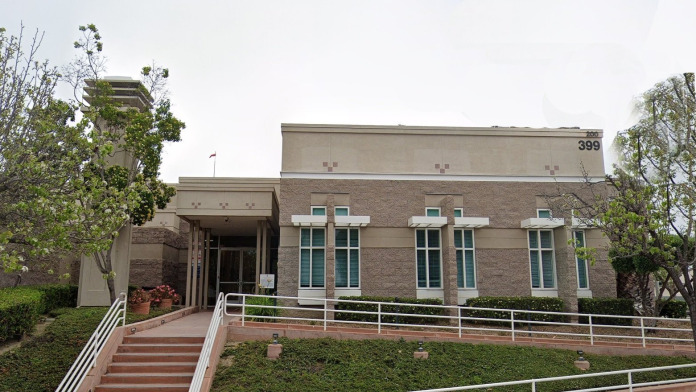
2 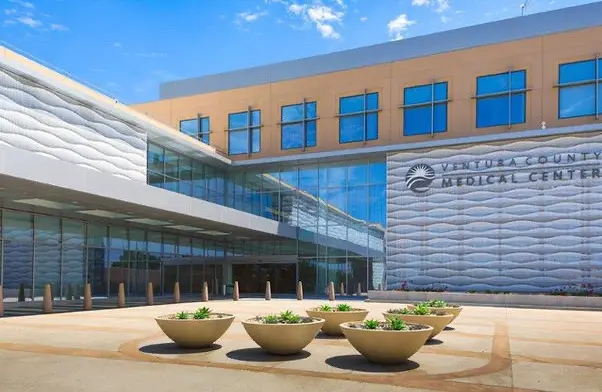
| |
Top California Cities | |||||
Ventura, CA | Kokua Wellness is an addiction and mental health treatment organization in Ventura, California. Their programs include medical detox, residential and outpatient treatment programs. They place a special emphasis on integrated mental health treatment for clients with co-occurring substance use and mental health disorders. The facility borders Arroyo | Treatments Payment Options | Such an incredible place to heal and get well in the Ventura community. Highly recommend!
J R
8 months ago
Kokua is a beautiful peace filled place with quality care . I highly recommend it
Estelle Martin
1 year ago
I have nothing but the utmost respect for the staff and owners of Kokua Wellness. They are incredibly nice and genuinely care about their clients and families well being. My son loved being at this facility. Thank you from the bottom of my heart for helping our family through a really tough time. You are all amazing!
Barbara B
1 year ago
| ||
Ventura, CA | The Center for Integrative Change on Maple Street in Ventura, California, offers behavioral health counseling services to address and treat co-occurring mental health conditions and substance use disorders. In addition, they offer many options for therapy to treat various other conditions including sex and porn addiction, EMDR and trauma therapy, i | Treatments Programs Payment Options | Jenean came as a recommendation from a friend and I value the work we've done together. She was truly invested in wanting to help me understand what it is I need to shift in and work through. She is an incredible listener and very professional.
Patricia Edwards
2 years ago
So much positive feedback for Jenean Cervantes! She is empathetic, professional, personable, and intentional. It doesn't take long to truly feel how present she is with you.
Ceci Frost
2 years ago
Jenean is an extremely helpful, compassionate and supportive therapist. I would absolutely recommend her.
Christy-Marie Allen
2 years ago
| ||
Ventura, CA | Ventura County Behavioral Health Center is located on Main Street in Ventura, California. Serving clients throughout Ventura, the Ventura County Behavioral Health Center is located in the heart of beachside Ventura near Route 101 and within a few blocks from Surfers Point at Seaside Park. It’s also located in close proximity to Ventura Botanical | Treatments Programs Payment Options | Dr. Kurr is my psych, very compassion, understanding, and gives good advice.
You can tell he genuinely wants the best. I feel like eye contact is very important because it shows he is listening. I've never felt like he wasn't listening. He covers all basis of mental health diagnosis. Thank you Dr. Kurr 🙏🏻
Cortney Harlow
1 year ago
The people who work here are great!
Jerry Brett
1 year ago
I’m so happy to have Jami the best advisor
to help me during I’m depressed and
I’m stressed out.She’s very kind
and understood my situation.
Frontdesk also.She’s nice and friendly.
I feel comfortable and happy
I went there.It’s helpful.God bless you all.
ChaChaa Teera
1 year ago
| 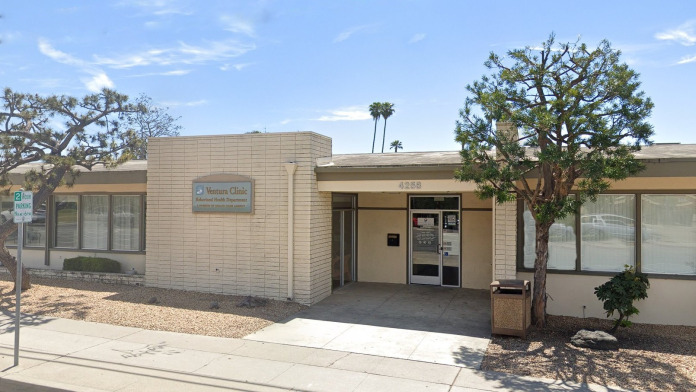
| |
Alcohol & Drug Rehab San Diego at Right Path RecoveryAd This is an ad and Alcohol & Drug Rehab San Diego at Right Path Recovery is a paid advertiser. Paid advertisers may be listed first in search results. This ad may contain content provided by the advertiser. Rehab.com does not verify ad content or any reviews that are displayed. Learn More San Diego, CA | Right Path Recovery, a top addiction treatment center in San Diego, CA, is devoted to aiding people in conquering substance abuse and reclaiming their lives. Our wide range of services includes medical detox, residential treatment, intensive outpatient programs, partial hospitalization programs, outpatient rehab, dual diagnosis support, and relapse | Treatments Programs Payment Options | View Website (888) 596-2518 | Alcohol & Drug Rehab San Diego at Right Path Recovery has no reviews yet. Leave a review.
| 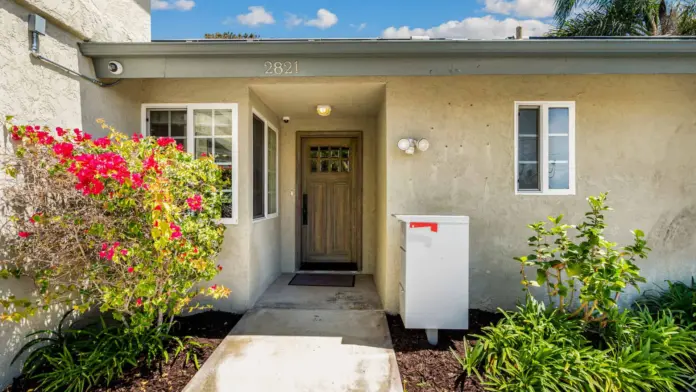



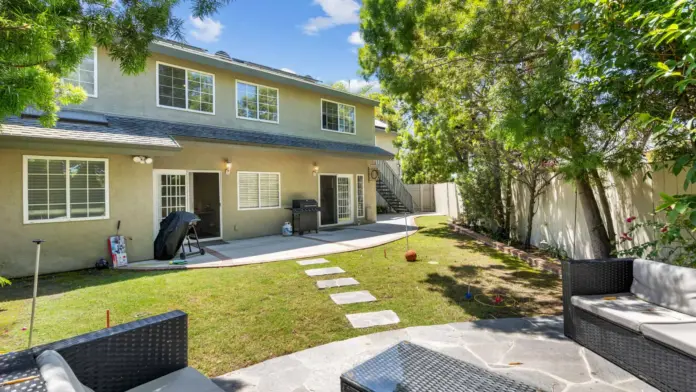
|
Ventura, CA | Based in California, Lee D. Mendiola, M.D. & Associates – TMS Center of Ventura offers outpatient mental health and addiction treatment services to adults. Most major PPO insurance plans are accepted, as well as self pay options. Outpatient Drug Rehab & Mental Health Services Northwest of Los Angeles Individuals who come for treatment | Treatments | I am truly grateful for my doctor’s exceptional care. He is always on top of my health, checking in, listening carefully, and making sure I receive the best service possible. It’s rare to find someone so thorough, compassionate, and genuinely committed to his patients’ well-being. I always feel supported and confident knowing he is looking out for me.
His office also went above and beyond to help get my insurance to approve a medication that initially wasn’t covered, and I’m extremely thankful for their dedication.
Highly recommended!
Arpineh Nasiri
1 month ago
I have Been seeing this Dr for over 6 yrs. He cares, he’s prompt and creative and offers tele visits which was perfect for me as I am A monthly patient and getting there all the time was kinda a
Pain sometimes. The other thing is that he is innovative and cutting edge technology vs. simple boxed in Western medicine. He supports clinical trials TMS and ketamine therapies. He doesn’t just push drugs. For me his belief in my pain after neck surgery and how to control it without narcotics was instrumental to my mental health and physical health. He is also extremely funny. He is always upbeat positive and delivering a smile. His staff is pleasant and kind. As a
Physician he’s great, also as an owner he treats his employees with respect and he’s an amazing family man as well as beloved Dog Dad! You’re in good hands!
SKN RX By Jazz
1 month ago
“I always have such positive experience with Dr. Lee Mendiola and staff. They always make me feel heard and respected, never rushed me, and gave clear explanations about my treatment. I highly recommend them to anyone looking for compassionate care.
Elva Bonilla
3 months ago
| ||
Ventura, CA | Ventura County Behavioral Health provides a wide range of services for alcohol and drug abuse problems to the youth and adult population. All services use an evidence-based treatment curriculum. Ventura County Behavioral Health is located at Ventura, California. Ventura County Behavioral Health is not a 12-step based program, it is an intensive ou | Treatments Programs Payment Options | Not your typical business review here but this is a government place and I've been there and the workers are serious about their job. Are they that helpful?
They do what they can. I received many free rides and the counselling was sincere, what more could you ask for?
Nik Zander
6 years ago
| ||
Ventura, CA | Destinations offers intensive outpatient and partial hospitalization program services for teen ages 13-17 years old who are dealing with substance abuse and/or mental health issues. The program includes individual therapy, group therapy, family support, life skills training and more. Destinations is located at Ventura, California. Destinations is | Treatments Programs Payment Options | Destinations has no reviews yet. Leave a review.
| ||
Ventura, CA | The Ventura Tri County Teen Challenge is located in the Foothill Mountains of Ventura, California. They provide help for women who have problems with alcohol and substance abuse. The Teen Challenge is a 12 month program done mainly at their 143 acre property called Miracle Mountain in Ventura. They are able to house 59 women who have completed a th | Treatments Programs Payment Options | Ventura / Tri-County Teen Challenge has no reviews yet. Leave a review.
| ||
Ventura, CA | The intensive residential program gives clients comprehensive drug and alcohol addiction care. It combines 30 days of treatment with a 60-day work entry program to better prepare clients for post-treatment living. Services offered include individual counseling, family support services, relapse prevention, week 12 Step meetings, case management serv | Treatments Programs | Miracle House has no reviews yet. Leave a review.
| ||
Moorpark, CA | Enlight Treatment Center is a dual-diagnosis behavioral health and addiction treatment center in Moorpark, California. Focusing on the treatment of adults, they provide counseling, detox, residential drug and alcohol rehab, and aftercare. Mental Health Assessment and Counseling These assessments evaluate the client’s mental health for the presen | Treatments Programs Payment Options | Such an amazing place. Definitely life changing and grateful for the fellowship and growth this place gave me!!
Cute Blonde
2 months ago
If you are nervous, hesitant, conflicted about getting help or helping a loved one get help, there isn’t a more warm-welcoming & safe place to be. All catagories you can possibly think of that would make a treatment center perfect, is exactly what Enlight Treatment Center is. I came immediately after being at another treatment center & I was terrified. When I made calls to get in somewhere, the person who answered was more concerned with my well-being than my wallet. My first day there, I was crying & I remember sitting with a counselor, Kristin, who I asked if everyone who worked there really cared & she along with every single staff member there proved just how much they cared. In fact, they really all went above and beyond to help every individuals needs in recovery. When I was near the end of my stay I was certain I was going back home right away. They helped me feel safe to try out sober living and it completely changed my life. Remember, employees are replaceable, if you’re worried about “needing to get back to work,” things will work itself out, trust the process & the staff. They have the purest hearts. I’m forever grateful for every single one of them.
Jess Bonnell
3 months ago
I’ve have referred many people to Enlight for detox and residential as well as for mental health treatment, and let me tell you, lives are being changed lives are being saved. I’ve been working as a recovery coach for almost 15 years, worked with many different treatment centers, none of them are like Enlight. I’ve had client sent to Enlight from all walks of life; rich poor employed unemployed, people who worked to unions and blue collar men to lawyers and nurses… this is the only place I trust to be able to take care of my folks in addiction. I trust them for many reasons but mainly because they have 3 doctors on site who will see you in person as opposed to other centers who have one doctor who will see you on zoom (if ever). The team at Enlight is as experienced as it gets, most of the staff themselves have been through addiction and really treat this job as a passion. I have sent over 100 people to Enlight for detox from alcohol, Xanax, ketamine, Cocaine, Fentanyl, Heroin, Marijuana, Whippets, Adderall, Methamphetamine… you name it. Many of these people were dual diagnosis, meaning they had both mental health issues and addiction. Most of my clients that I’ve sent to Enlight are sober now! Enlight really knows how to Safely medically, detox, and set up the foundation for future success in sobriety. Love you guys. Shout out to Chef Carlo, homie is a wizard when it comes to making food. If you’re looking to get help for mental health or Addiction Don’t waste time calling other places who only want you there for the paycheck, Call enlight Because they really care
Vince the Recovery Coach
3 months ago
| 

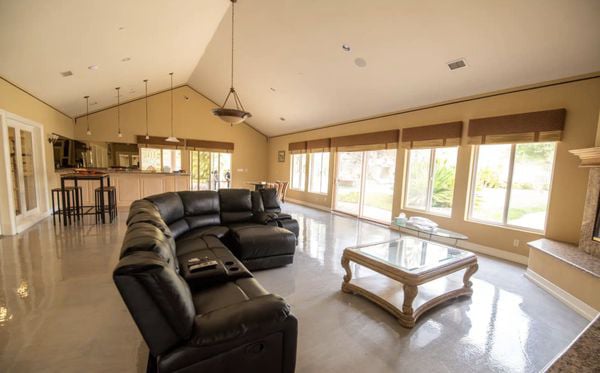


| |
Able2Change Mental Health & Depression Treatment CenterAd This is an ad and Able2Change Mental Health & Depression Treatment Center is a paid advertiser. Paid advertisers may be listed first in search results. This ad may contain content provided by the advertiser. Rehab.com does not verify ad content or any reviews that are displayed. Learn More San Juan Capistrano, CA | Able2Change Mental Health & Depression Treatment Center in Orange County is dedicated to providing comprehensive and compassionate care for individuals struggling with mental health issues and depression. Our center offers a range of evidence-based treatments, including therapy, counseling, and medication management, tailored to meet the uniqu | Treatments Programs Payment Options | View Website (949) 334-5698 | Able2Change Mental Health & Depression Treatment Center has no reviews yet. Leave a review.
| 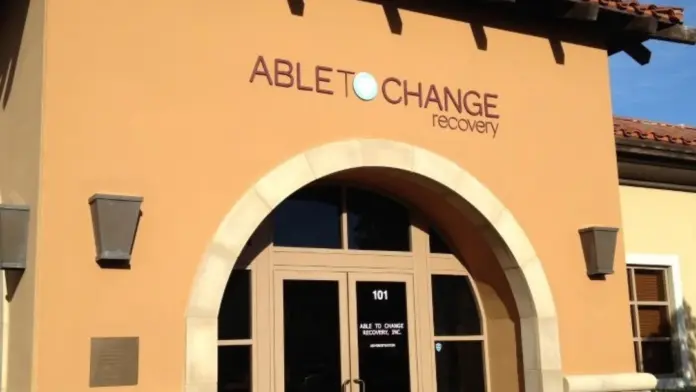
3 

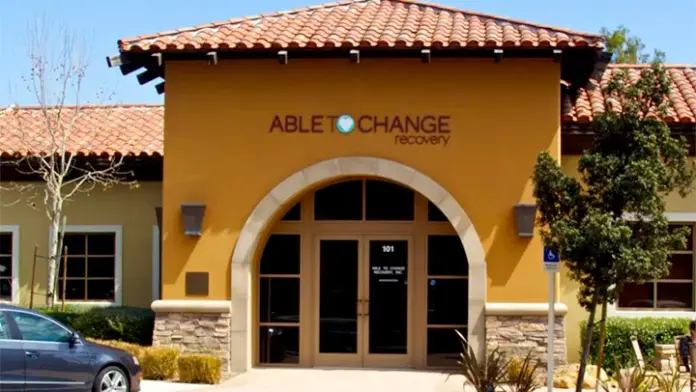
|
Oxnard, CA | AEGIS Treatment Center (part of Pinnacle Treatment Centers as of 2020) is a drug and alcohol rehab for adults, located in Oxnard, California. They also provide valuable community resources, such as referrals, case management, and family support programs. Addiction-related services offered at Pinnacle’s AEGIS Treatment Center include mental healt | Treatments Programs Payment Options | Amazing place and people!!!
Monique Herber
3 months ago
Been clean a full year and couldn’t have done it without these awesome people
Jose Soza
1 year ago
I went here briefly from 2011 - 2012 & it saved me then. I unfortunately relapsed multiple times & went in & out of inpatient rehabs for years. In 2018 I decided to give Aegis another go. I am now coming up on SIX YEARS CLEAN in October thanks to this program helping to o keep my arse in line.
Paul C. Giacobbe
1 year ago
| 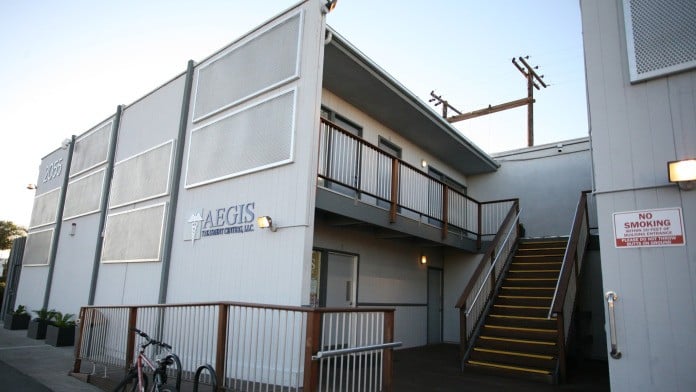
3 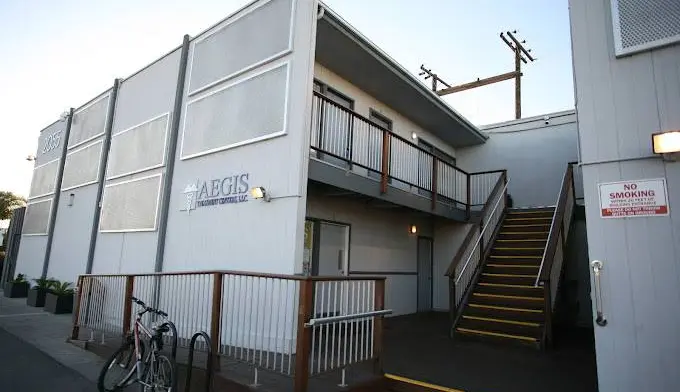
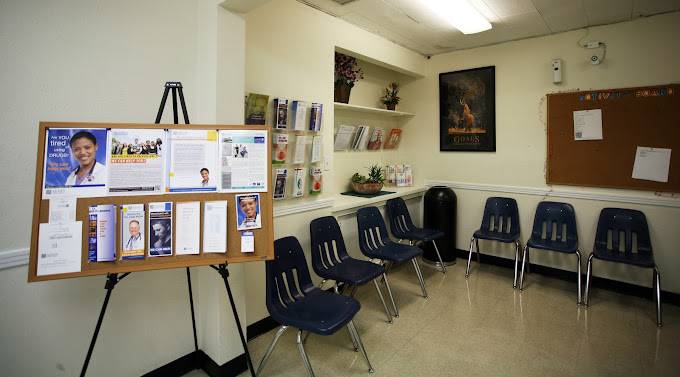
| |
Port Hueneme, CA | Passages Ventura is a drug and alcohol rehabilitation clinic in Port Hueneme, California. The facility offers several programs including detox, residential treatment, outpatient treatment and sober living homes. They accept most major types of insurance including TRICARE and Kaiser Permanente. They have a medication assisted detox program where nur | Treatments Programs Payment Options | This place helped me get off Xanax . I was on it for 11 years. I was able to do a 32 day taper using kolonopin here . It really wasn’t as bad as I thought it was gonna be , not easy but not as bad an experience as I had heard about. It kind of feels like a hotel and the experience feels like school , the staff is very nice and accommodating here .
Justin Baker
2 months ago
Passages changed my life. It is not easy - in fact it’s really, really hard. If you’re committed to doing it the right way - you are going to wind up dealing with a lot of painful issues and hurts - and all without your substance of choice to numb the pain. But - you will be supported every step of the way. The staff is WONDERFUL and so genuinely happy for the progress you make. The other clients become your closest friends and there is nothing you can say there that will shock anyone. There is zero judgment, just support and kindness and encouragement. Even post discharge they have weekly in person and online alumni groups which are fantastic and the facilitators of those groups genuinely care. Other than becoming a mom, Passages is the best thing that ever happened to me. I’m forever grateful.
Trish W
9 months ago
This place is amazing. They have saved my life twice now. I’ve been to many facilities before and none of them can compare. From the quality of all the details like snacks, food, rooms, outdoor areas to the excellence of the staff and professionals that are committed to helping you. The level of care I have received there has given me a second, third chance at life. I would recommend to anyone to use this facility to better your life.
Michael Salem
1 year ago
| 
6 6 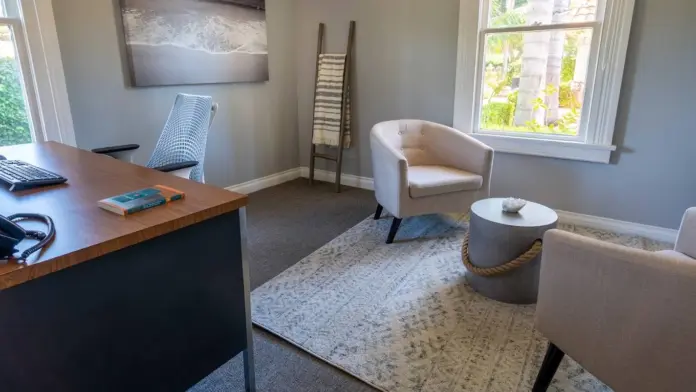

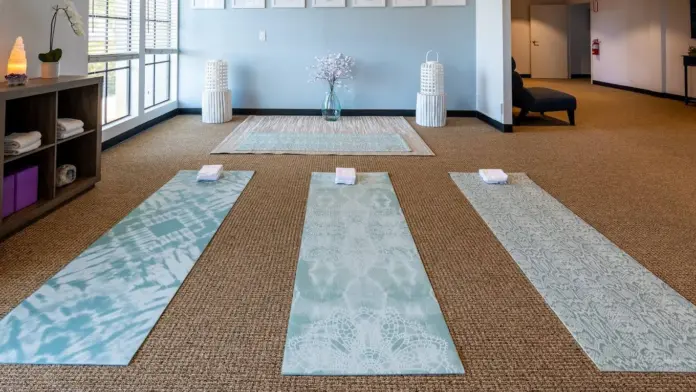

| |
Ojai, CA | Evidence-Based, Individualized Care Our treatment model is rooted in proven, evidence-based approaches, with a strong emphasis on Dialectical Behavior Therapy (DBT) and Cognitive Behavioral Therapy (CBT). All of our programs provide adherent DBT skills training to help teens build practical tools for emotion regulation, distress tolerance, interper | Treatments Programs Payment Options | I went to Evolve Ojai back in February of this year. I had never been in a residential treatment center and I was really nervous, however I did go voluntarily. My experience wasn’t terrible. There were pros and cons for sure, these were:
Pros:
Really good food
Outings were fun
If you were level 3 and above, you could go on off site visitations with your family
Cons:
Leveled me down on my last week while I had been withdrawing from two meds (Abilify and Zoloft)
Made me sit through an intense PTSD flashback and didn’t let me do anything to distract myself (it was to practice a skill, but i really needed help and i felt very distressed)
Tried to punish me and make me stay an extra week for feeling suicidal after leveling me down
Didn’t really do much when another kid was making me feel uncomfortable by making me feel overstimulated
But it was not a very bad experience. I’ve been to two residential treatment centers (both evolve) and this one was definitely the best one I’ve been to.
Avery
1 month ago
My son had a great experience here. The team is stellar and treated him like he was their own family. We had a few rough days and they were amazing with keeping me in the loop and making sure to carry out my wishes. He was diagnosed within the first month of what his mental health issues were and they treated him according to what they thought was best for him. They gave us a lot of materials for us to educate us about his disorder, and educated him on what it meant and how to move forward.
Karen Forman McAllister
4 months ago
We had a truly positive experience with Evolve Teen Treatment in Ojai, CA for our 13/14-year-old daughter. The location is beautiful, right near downtown Ojai, and the environment felt very welcoming from the moment we arrived.
Our daughter struggles with anxiety, depression, self-harm, suicidal ideation, and challenging behaviors. At Evolve, she was finally able to find her voice. With the support of the incredible staff and therapists, she learned how to better understand her mental health and, for the first time, could articulate what she was feeling.
Evolve kept her engaged every day with a full schedule of therapy and activities like hiking, surfing, yoga, working out, and healthy meals, which helped her get strong both mentally and physically. She stayed for three months the first time and two months the second time (not typical, but necessary in her case). Coming home was hard, but the setbacks were due more to outside influences than the program itself.
What stood out most was the level of care and dedication from the staff and therapists. They weren’t just there for her, but for our whole family. The family sessions were incredibly helpful in teaching us how to best support her. We learned that it’s not about perfection but about progress and resilience, even when things don’t go as planned.
We were in a place of deep hopelessness before finding Evolve, but the program was truly a godsend. It not only helped our daughter, but also gave us the tools to keep growing as a family. A friend recommended Evolve to us, and now we wholeheartedly recommend it to anyone with a teen going through hard times. We are forever grateful.
Emily Mowrey
4 months ago
| 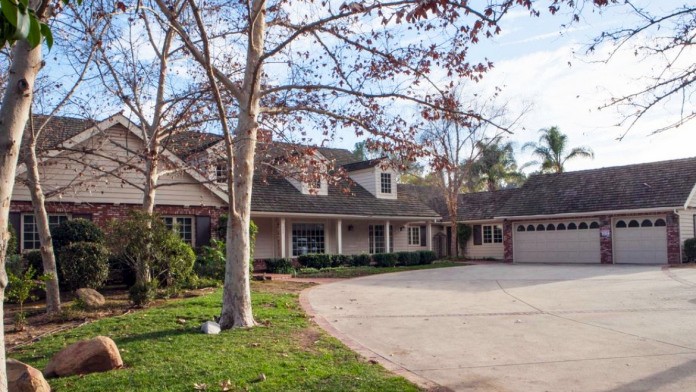
4 
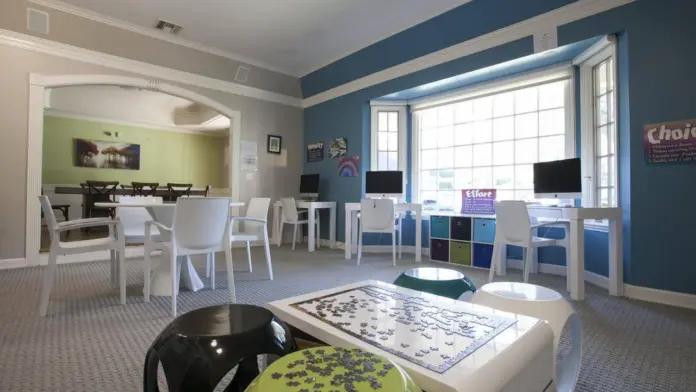


| |
Thousand Oaks, CA | Ventura Recovery Center in Thousand Oaks, California, provides inpatient medical detox for adult men and women with co occurring addictive disorders. Their comprehensive treatment approach includes medication management, individual therapy, and intensive outpatient care. They accept a wide range of insurance and welcome out of state patients. You c | Treatments Programs Payment Options | I am eternally grateful for the staff and my treatment team. Vrc enabled me to get my life back and have a safe place to work on myself.
6 years ago
recently stayed at the VRC and I truly cannot express how grateful I am for the experience. From the moment I arrived, the staff went above and beyond to make me feel safe, supported, and welcomed. Everyone was incredibly kind, compassionate, and helpful—especially during the moments I needed it the most.
I want to personally thank each and every staff member for creating such a warm and supportive environment. Their care and encouragement made a huge difference in my journey, and I’ll always be thankful for the role they played in my healing process.
If you’re looking for a place where you’ll be treated with genuine respect, kindness, and understanding, I wholeheartedly recommend VRC. They truly care—and it shows.
J rodriguez
6 months ago
Ventura recovery center is where it’s at! It taught me discipline, structure, and that I have support everywhere through A.A.
acceptance is the key to recovery and one day at a time !
I’ve been to many rehabs in the passed and this is the best one… the owner, staff and therapists go above and beyond for you and more. Treat you like family.
Highly recommend to someone who is struggling and suffering due to addiction.
“Anything is possible through A.A.”
Justine Schram
1 year ago
| 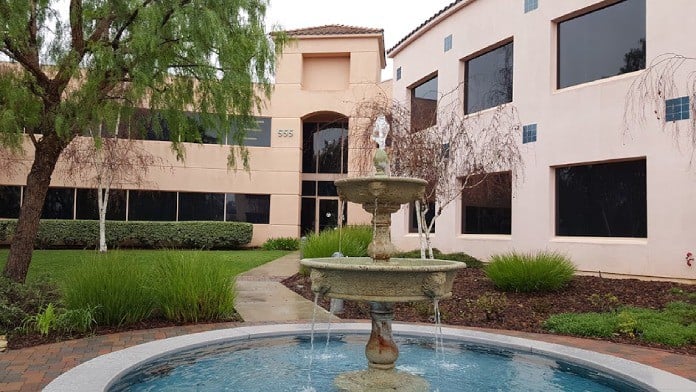
2 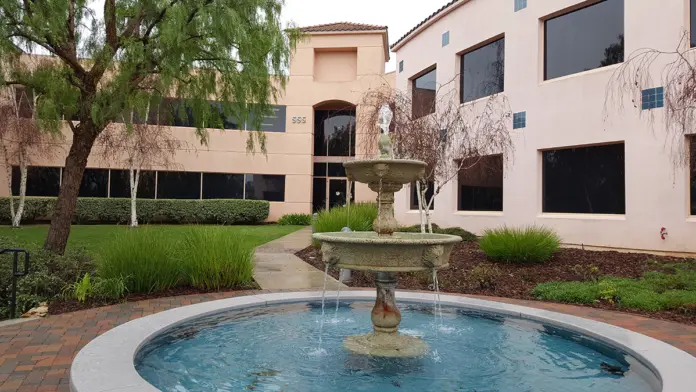
| |
Santa Barbara, CA | Santa Barbara Rescue Mission is an addiction and mental health treatment facility that serves men around Santa Barbara, California, who have struggled with lasting cycles of crime, addiction, homelessness, and poverty. This 12 month residential program provides support to help rebuild lives, and, even better, you do not need insurance to pay for th | Treatments Programs Payment Options | I spent the entire year of 2013 at Bethel House. The best decision of my life. After graduating, I didn't want to leave. LOL! I have never met such amazing people,the staff was so loving, supportive and selfless. I would recommend this program to anyone who is struggling with addiction. I also was fortunate to volunteer at the homeless program. I can never thank them enough for helping me get my life back
Tisha Hinn
2 months ago
SBRM is an incredible organization with a compassionate team and a powerful mission. Their ministry truly transforms lives, offering meals, shelter, and hope to those in need. I highly recommend supporting SBRM; they make a real difference in our community every day.
Lacy Stanley
2 months ago
Stayed there 2006. 10-day program, but can get renewals. It was a great place. I was fortunate, at that time, because THE GIRL IN CHARGE WAS NICE. I worked and they gave me opportunity to rebuild my life. Food plenty and good. Served with love and respect. Prayer service wonderful. Clothes locked so no fear of robberies.
Light chores. THANK YOU, lol
Lucyl Caruso
1 year ago
| 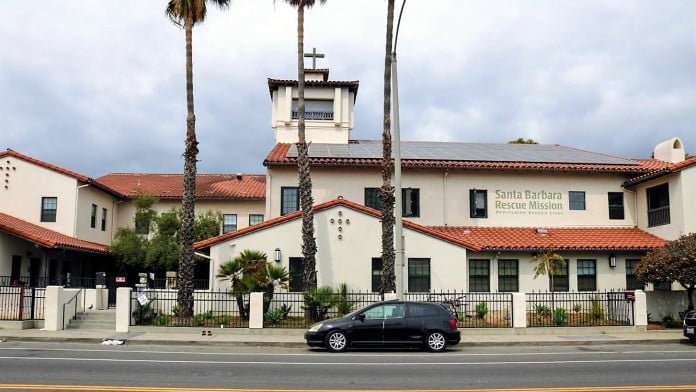
| |
Santa Barbara, CA | If you’re down on your luck, Santa Barbara Hospitality House has temp housing for adults. It's located in Santa Barbara, California. Their goal is to help you break free from any alcohol and drug addictions so you can find a job and start earning a steady income. Then, they’ll help you get back to your home and family. Like most other Salvation | Programs Payment Options | Great place to get on your feet. Follow the rules and get your life on track. I was only there for a short time but I appreciate the staff and the program.
They take care of Veterans🇺🇸🙏
Michael Stevens
2 months ago
I was living there in 2017. I was treated with kindness and respect. The facility was clean and the food very good. They helped me to obtain housing. They offer church service which I loved. I will always be grateful to the staff and my precious Lord and Savior Jesus for that experience.
Manuela Tellez
3 months ago
If you're in need it's the best business to help you with housing and work
Ion Van Cleave
1 year ago
| 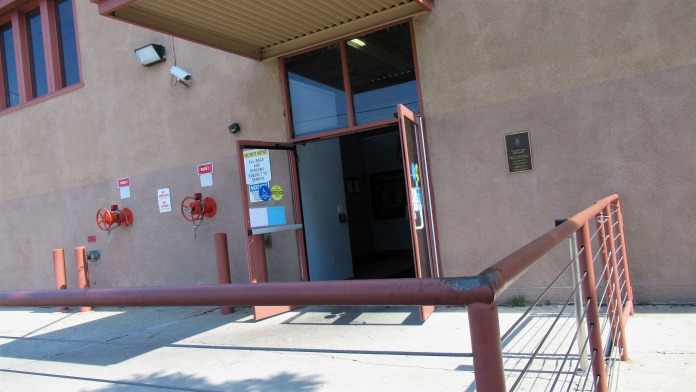
2 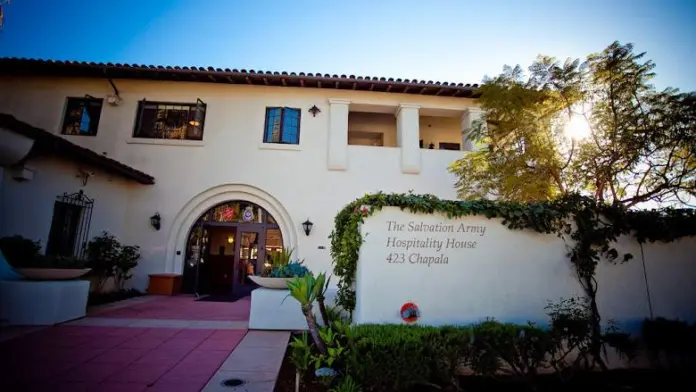
| |
Purposes RecoveryAd This is an ad and Purposes Recovery is a paid advertiser. Paid advertisers may be listed first in search results. This ad may contain content provided by the advertiser. Rehab.com does not verify ad content or any reviews that are displayed. Learn More Los Angeles, CA | Purposes Recovery is an upscale drug and alcohol rehab center in Los Angeles, California. They offer a range of services including medically supervised detox, residential care, partial hospitalization, and intensive outpatient services. Care here is tailored to each client’s individual needs, with programs offered in a serene, peaceful setting in | Treatments Programs Payment Options | View Website (352) 306-0781 | Purposes Recovery has no reviews yet. Leave a review.
| 
15 15 

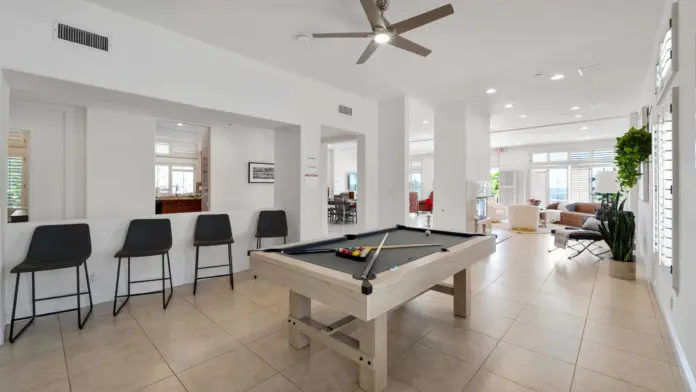

|
Port Hueneme, CA | Passages Ventura is an addiction treatment center for adults in Port Hueneme, California. Their treatment approach primarily focuses on healing the underlying conditions that lead clients to use alcohol or drugs. The services offered here include a detox program, a residential program, an outpatient program and sober living homes. Clients can call | Treatments Programs Payment Options | This place helped me get off Xanax . I was on it for 11 years. I was able to do a 32 day taper using kolonopin here . It really wasn’t as bad as I thought it was gonna be , not easy but not as bad an experience as I had heard about. It kind of feels like a hotel and the experience feels like school , the staff is very nice and accommodating here .
Justin Baker
2 months ago
Passages changed my life. It is not easy - in fact it’s really, really hard. If you’re committed to doing it the right way - you are going to wind up dealing with a lot of painful issues and hurts - and all without your substance of choice to numb the pain. But - you will be supported every step of the way. The staff is WONDERFUL and so genuinely happy for the progress you make. The other clients become your closest friends and there is nothing you can say there that will shock anyone. There is zero judgment, just support and kindness and encouragement. Even post discharge they have weekly in person and online alumni groups which are fantastic and the facilitators of those groups genuinely care. Other than becoming a mom, Passages is the best thing that ever happened to me. I’m forever grateful.
Trish W
9 months ago
This place is amazing. They have saved my life twice now. I’ve been to many facilities before and none of them can compare. From the quality of all the details like snacks, food, rooms, outdoor areas to the excellence of the staff and professionals that are committed to helping you. The level of care I have received there has given me a second, third chance at life. I would recommend to anyone to use this facility to better your life.
Michael Salem
1 year ago
| 
| |
Newbury Park, CA | Conejo Valley Recovery Centers is a sober living transitional environment located in Thousand Oaks, California. They provide a supportive and structured environment for men. You will be surrounded by like minded men. Rent is paid monthly. Semi private rooms are available. You have your own closet space and drawers. This is an approved site for medi | Programs Payment Options | This is a really nice place! It is located in a good neighborhood. The facility is large with really attractive comfortable furniture. There are a lot of areas to make enough space for everyone. There is even a large backyard with hammocks and a meditation area. The resident drug and alcohol counselor, Chris, is very compassionate and has lots of resources to help change people's lives.
Robin Britt
1 year ago
This place is the right choice to make a fresh start! A supportive and ultra comfortable home like environment where you can heal and grow.
Jeff Synergy
1 year ago
Great place for when you’re struggling in your life. Gave me the safe place I needed while I was getting healthy. It’s the most reasonable cost you will find. Very clean. Great group of people
Matt Tucker
1 year ago
| 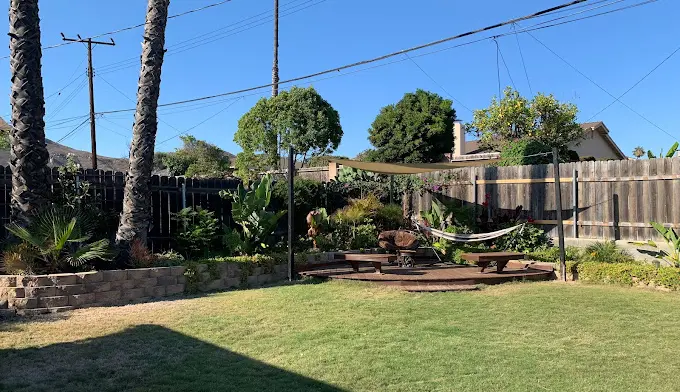
5 5 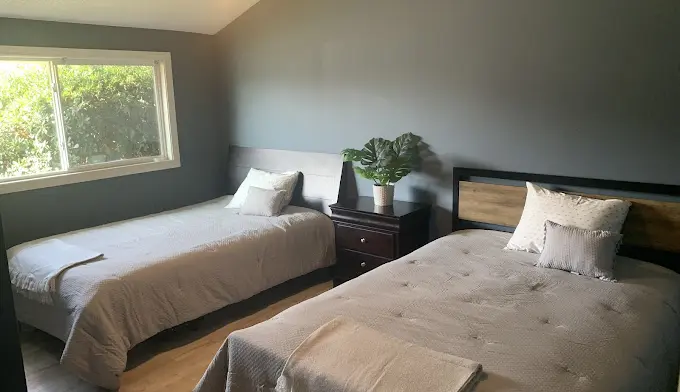
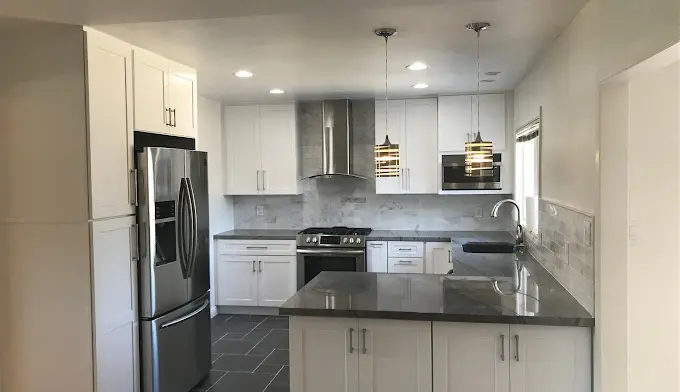
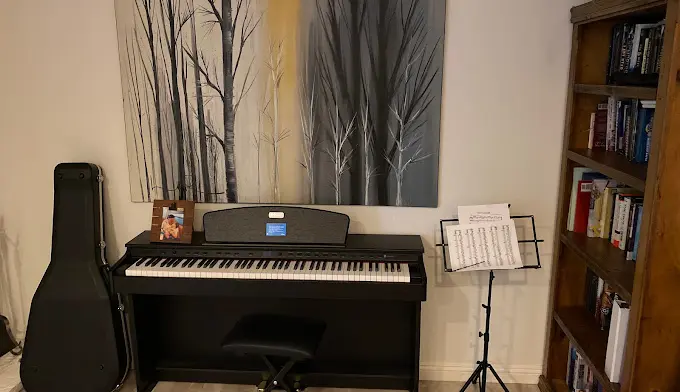

| |
Oxnard, CA | Situated in the enchanting coastal city of Oxnard, California, Pure Recovery provides residential mental health and substance abuse programs that are uniquely tailored to give individuals a chance toward long-term recovery. It uses science-based treatments and combines them with a wellness-centric protocol to provide an all-encompassing way of trea | Treatments Programs Payment Options | There is a very diverse clientele at Pure Recovery. While the clients are mainly athletes, there are also clients that are in recovery for addiction, I being one of them. I enjoyed the group sessions, and they were very healing. My therapist, Pia, is a true gift, and I would recommend her for anyone healing from addiction. The staff was more like a family and they treated me very well. From the owner Deb to the administration, techs, and nursing staff, everybody was very accommodating to me. A shout out to the chefs, while being there almost thirty five days, every meal was delightful every time. I only wish I could stay longer, thank you Pure Recovery for My Success, I am well.
Robin Knight
5 years ago
I have been a recovery advocate for former professional athletes for many years . Part of that job requires me to select treatment programs that are well suited for their often complex needs. Finding good programs that truly understand addiction/dual diagnosis issues that are often complicated by cognition and brain trauma issues was a nearly impossible. Then the NFL Alumni connected me to Pure Recovery California. The Pure Recovery programs , which are for everyone not just athletes are remarkable. Their approach to treating addiction as a brain disease and their advanced neuroscience programs are real game changers. The facility is beautiful and the expert medical team is outstanding. The results for the athletes that I personally know and work with that have been through the program are just amazing , life changing and lifesaving. I will continue to recommend Pure Recovery California and their outstanding programs to athletes and others who are in need of recovery programs.
Jennifer Smith
5 years ago
Pure Sports Recovery is a great place! There’s no place like it in the country. The staff really cares about their clients and they food is some the best I have ever had! If you are looking to push the reset button, this is the place to go too!
Mj McFarland
7 years ago
| 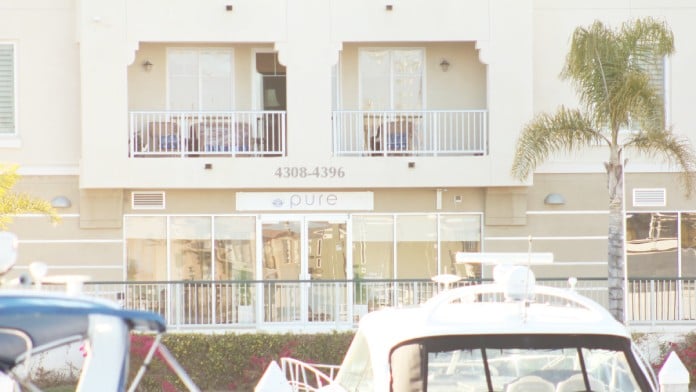
| |
Santa Barbara, CA | Cottage Residential Center, located in Santa Barbara, California is a private alcohol and drug rehab that offers treatment for a variety of substance abuse addictions including alcoholism, co-occurring mental health disorders, and opiate addiction. They offer supervised medical treatment to safely manage withdrawal symptoms during detoxification, a | Treatments Programs Payment Options | Going to Cottage Residential Center was the best decision I ever made. I tried to stop drinking on my own, but was powerless over alcohol, and unable to do it. I woke up one day and decided that I needed help, because I didn't know how to live without alcohol. I called and a kind lady answered, I was a wreck. She helped arrange my arrival. Immediately I felt welcomed and safe. The counselors were kind and never once did I feel ashamed, in fact it was the complete opposite I felt proud to be taking control of my live. This intervention put me on a clear path, when I left I had a plan on my next steps in recovery. I have been sober almost three years and I believe that this wouldn't have been possible without checking into Cottage Residential.
7 years ago
Clean date, 7/27/2017. This program worked for me after three attempts in other inpatient programs. If you're ready for recovery this is a great program that teaches you how to live life on a daily basis clean and sober after discharge.
Adrian Haun
3 months ago
CRC is an outstanding rehab I highly recommend. The compassionate staff and serene location, just two blocks from the ocean, provide an ideal setting for recovery. Santa Barbara’s strong recovery community is bolstered by CRC’s dedicated doctors and therapists, who deliver personalized care through counseling, 12-step meetings, and therapies like stress management. Unlike some newer sober living facilities that lack sufficient support, CRC offers comprehensive programs and a robust support. Lots of alum in long term sobriety.
Drew Havens
5 months ago
| 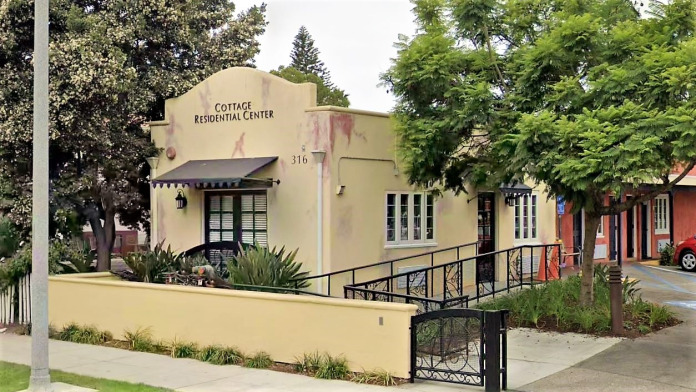
|

California is ranked 23rd nationwide in terms of addiction treatment affordability, with an average cost of addiction treatment of $56,654.
The costs of drug and alcohol rehab in California vary widely and depend on several factors, including:
The costs of addiction treatment listed for cities and states are averages based on the cost of the treatment types listed above. These averages are high due to the cost of medical detoxification and residential inpatient rehab programs.
These numbers also reflect the raw cost of drug rehab, before any insurance coverage. The typical individual seeking addiction treatment can expect to pay much less for outpatient or intensive outpatient services than the averages listed below.
There are many ways to pay for drug rehab in California. Most treatment centers accept cash or self-payment, as well as private health insurance. However, there are many treatment centers in California that accept Medicaid and Medicare, or offer sliding scale payments or other low-cost payment options. Here’s the complete breakdown of how to pay for addiction treatment in California.
Blue Cross Blue Shield is the most widely-accepted insurance for drug rehabs in California, with 824 treatment centers in the state accepting their insurance. Aetna is the 2nd most popular with 816 treatment centers accepting it followed by Cigna in 3rd accepted by 709 drug rehabs.
California is ranked 32nd nationwide in drug rehab admissions, with 340 rehab admissions per 100,000 population in 2023, which is lower than than the U.S. national average of 621 admissions per 100,000.
The following are the number of California rehab admissions in 2023 for each of the 6 most frequently used drug classes, as well as the relative percent for each type of drug.
Source: Substance Abuse and Mental Health Services Administration. National survey of substance abuse treatment services (N-SSATS).
California is ranked 26th nationwide in terms of annual drug overdoses, with an average of 29.7 overdoses per 100,000 population and a total of 11,538 overdoses in 2023. Opioid abuse accounted for 70% of all drug overdoses in California, with a total of 8,034 opioid overdoses in 2024.
Centers for Disease Control and Prevention. Provisional drug overdose death counts. U.S. Department of Health and Human Services.
California is ranked 33rd for drug and narcotics-related violations, with an estimated 329 narcotics citations per 100,000 population which is lower than the National Average of 421.
All values are per 100,000 population.
Federal Bureau of Investigation. Crime data explorer: Crime trends. U.S. Department of Justice.
California has the 18th highest rate of drunk driving in the nation, with a total of 246 DUI arrests per 100,000 people in 2023 (and 96,048 total DUI arrests).
All values are per 100,000 population.
SafeHome.org. DUI statistics and trends.